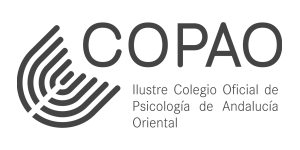Speaker

AITANA FERNÁNDEZ-SOGORB
UNIVERSITY OF ALICANTE. SPAIN
Aitana Fernández-Sogorb holds a PhD in Educational Research from the University of Alicante (unanimous Cum Laude and Extraordinary Award). Her doctoral thesis was funded by a University Professor Training grant from the Ministry of Education, Culture, and Sport (2016).
She currently works as an Assistant Professor in the Department of General Didactics and Specific Didactics in the Faculty of Education at the University of Alicante, where she has completed six years of research and five years of teaching. Her research focuses on school situations that generate anxiety, attendance problems, and negative school climate, and their relationship with psychoeducational variables in children and adolescents.
She has contributed more than one hundred articles to national and international conferences on Education and Psychology. She is the author or co-author of more than 60 articles, forty of which are indexed in JCR and/or SJR. She is also the author or co-author of some thirty book chapters, most of which are indexed in Scholarly Publishers Indicators (SPI). Many of these publications stem from her participation in regional, national, and European research projects, including the Erasmus+ project “Observatory SOS-Attendance,” in which she actively collaborates on research into school attendance issues with experts in the field from Turkey, Italy, and Portugal, and the Erasmus+ project “SPICE Special Education STEAM Academy,” in which she has provided training to teachers from Bulgaria, Cyprus, and Greece on interventions for Special Education students through STEAM. She has also recently published a guide for parents in the Psicocuentos collection published by Pirámide under the title “El niño desmotivado” (The Unmotivated Child).
NEW PERSPECTIVES IN THE STUDY OF SCHOOL CLIMATE PERCEIVED DURING ADOLESCENCE
During adolescence, interest in social relationships with peers becomes more important, and academic demands increase. Considering the amount of time individuals at this stage of development spend in school, it is essential to pay attention to the school climate to promote their well-being. School climate is understood as the quality of life offered within the school and the perceptions its members have about the situations they experience there. Therefore, when examining the school climate, numerous dimensions must be considered, encompassing areas related to physical and emotional safety, social interactions, as well as the quality of the teaching-learning process and organization. It has been shown that some of these areas, when considered unfavorable, are associated with academic demotivation, internalizing and externalizing problems, and even truancy. However, to prevent a negative school climate or to intervene and improve it, it is necessary to consider both its multidimensionality and its relationship with potential, underexplored explanatory variables. In this regard, this symposium seeks to present novel findings from research on school climate in relation to the characteristics of secondary school students. Specifically, the articles address school climate from a multidimensional perspective and evaluate its relationship with constructs that allow us to deepen existing knowledge, such as the motivational variables of learned helplessness and mastery orientation, as well as expand it, as is the case with school attendance problems that go beyond truancy. Fostering interest in socialization and learning in school is a complex challenge, and this symposium hopes to clarify the needs that students must address to achieve this goal.













